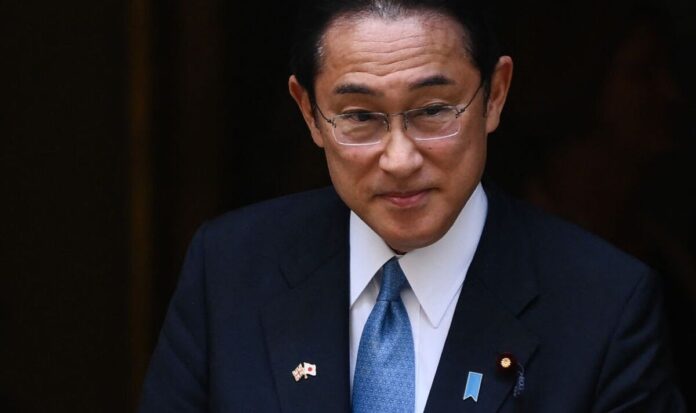TOKYO(REUTERS)-Japanese Prime Minister Fumio Kishida and Lithuanian NATO leaders stressed the importance of recognizing China’s and Russia’s activities in Asia, which Japan sees as a threat to global security. Kishida wants to diversify Japan’s security partnership beyond its traditional alliance with the United States, as Japan increases its defense spending to counter Chinese and Russian forces in the region.
Japan is concerned about its proximity to nuclear powers such as China, North Korea and Russia, which neighbors several NATO members. Japan, in particular, fears being embroiled in a dispute over Taiwan, which is only 100 kilometers away. Kishida, who has criticized China for Japan’s “Cold War spirit,” has consistently warned of the possibility of a Ukraine-like conflict in East Asia if China seeks control of Taiwan.
By working with NATO, Japan can help build stronger ties with the United States and its allies in both the Atlantic and Pacific regions, bridging the divide between traditional Atlantic and Pacific allies. This collaboration includes addressing various options related to security concerns. During the NATO summit in Lithuania, Japan is expected to be accepted into NATO’s individually customized partnership program to promote cooperation on cybersecurity, space and information sharing regarding China and Russia.
However, establishing a NATO office in Tokyo is unlikely because of opposition from French President Emmanuel Macron, who fears it could provoke China and unduly expand NATO’s geographical reach. . NATO countries in Europe have also expressed reservations about the idea, and this is not limited to France. Japan may not be given a physical office, but will maintain communications with NATO through its embassy in Brussels and the Danish embassy in Tokyo. South Korean President Yoon Seok-yeol, who is attending the North Atlantic Treaty Organization (NATO) summit, wants to strengthen ties with Europe and consider new defense deals, especially with Poland and others. South Korea has set up a liaison office with NATO in Brussels and supports calls for unity among like-minded nations. But Mr. Yoon could come under pressure to supply Ukraine with arms, but the government is reluctant to do so, fearing Russia’s influence in North Korea.
Australian Prime Minister Anthony Albanese, who was also invited to the NATO meeting, reiterated Australia’s continued support for Ukraine when asked about possible financial assistance to Ukraine.
Overall, Japan’s participation in the NATO summit represents an effort to extend its security partnership beyond the United States and raise awareness of China’s and Russia’s activities in the Indo-Pacific region. Japan’s concerns stem from being surrounded by nuclear-armed states such as China, North Korea and Russia. The country is particularly concerned about possible disputes over geographically nearby Taiwan. Kishida has repeatedly warned that a Ukraine-like conflict could erupt in East Asia if China tries to take control of Taiwan. But China has criticized Japan’s stance, accusing it of maintaining a “Cold War-era mentality.”
Working with NATO allows Japan to assist the United States in bridging alliances between its partners in the Atlantic and Pacific. By working closely with NATO, Japan aims to jointly address various security concerns. During the NATO summit, Japan is expected to join NATO’s individually customized partnership program, which will facilitate cooperation in cybersecurity, space and information sharing related to China and Russia.
Japan is eager to set up a NATO office in Tokyo to strengthen ties, but the idea is opposed by French President Emmanuel Macron and other European NATO countries. They fear provoking China and expanding NATO’s geographic influence. Therefore, although a physical NATO office is unlikely to be established in Tokyo, communication and cooperation will continue through existing channels.
In addition to Japan, South Korean President Yoon Suk Yeol and Australian Prime Minister Anthony Albanese will also attend the NATO summit. South Korea aims to deepen its relations with European countries, including exploring defense agreements, while Australia reaffirms its support for Ukraine.






